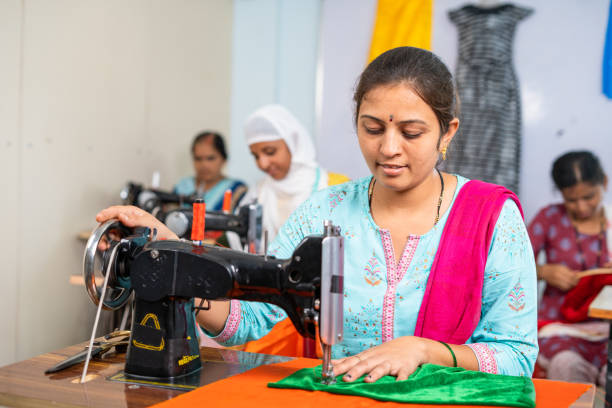Why Skill Training Matters More Than Degrees for Dropout Youth
At Aashray Samiti, our experience with youth from vulnerable communities has proven something powerful: practical skills open doors where academic qualifications cannot

Category
Date
June 9, 2025
Author
Govindani Marketing
Why Skill Training?
In many parts of rural India, education stops long before dreams do. Whether due to poverty, migration, or family responsibilities, countless children drop out of school before completing 8th or 10th grade. Without a degree in hand, they are told there’s nothing left for them — no job, no future, no identity. But that isn’t the whole truth. What if the answer doesn’t lie in classrooms, but in craft? What if skill training could offer a second chance?
At Aashray Samiti, our experience with youth from vulnerable communities has proven something powerful: practical skills open doors where academic qualifications cannot. When dropout children are trained in tailoring, beautician work, computer literacy, or plumbing, they don’t just learn a trade — they reclaim self-worth. Many of the girls we’ve trained now run home-based tailoring shops or beauty services in their localities. Boys we’ve supported earn through computer jobs, repair work, or part-time freelancing.

Less time and effort when it comes to training
Skill training is not a shortcut — it’s a sustainable bridge. Especially in areas where formal degrees are out of reach, hands-on vocational learning gives dignity, income, and purpose to youth who are otherwise left behind.
💡 Here’s Why Skill Training is Changing the Game:
- It meets youth where they are.
No one needs to “qualify” to learn. Courses are designed to suit all levels — even those who haven’t finished school. - It leads to real income, fast.
Most children begin earning within 3–6 months of completing a skill course, especially in high-demand areas like stitching, digital work, or local services.
It builds confidence beyond classrooms.
For many girls especially, skill training is the first time they feel seen, capable, and independent, even from within their homes.
“We don’t pick causes. We respond to pain — wherever it rises, however quietly it comes.”
Skill training also creates local livelihood ecosystems. Instead of migrating to cities, many youth set up small businesses in their own villages, helping local economies grow. It reduces dependence, avoids exploitation, and fosters community-level change.
Most importantly, these programs teach that a dropout is not a failure. They are simply waiting for the right path — one that respects their background, their pace, and their reality. That path is skill.
At Aashray Samiti, we’re proud that Rozgaar Ki Raah has helped dozens of youth stand tall, not with degrees, but with direction.
Because success isn’t always measured in marksheets.
Sometimes, it’s measured in stitched blouses, working computers, and proud smiles.
